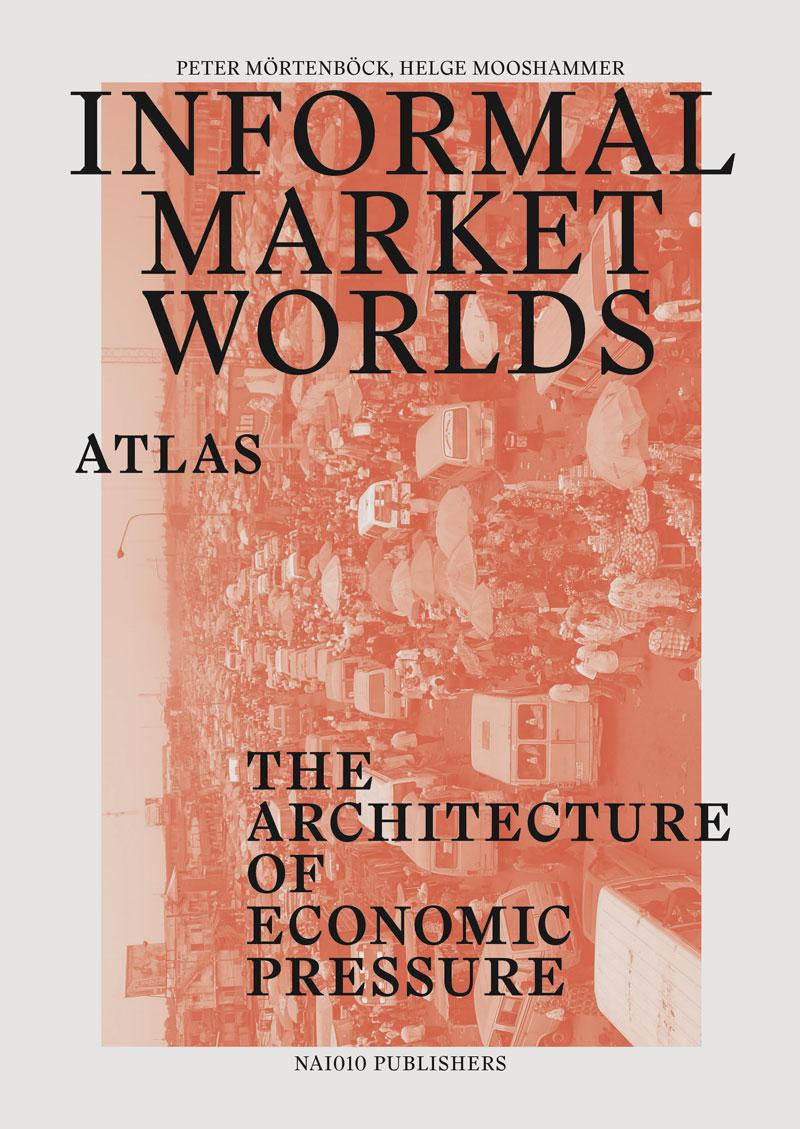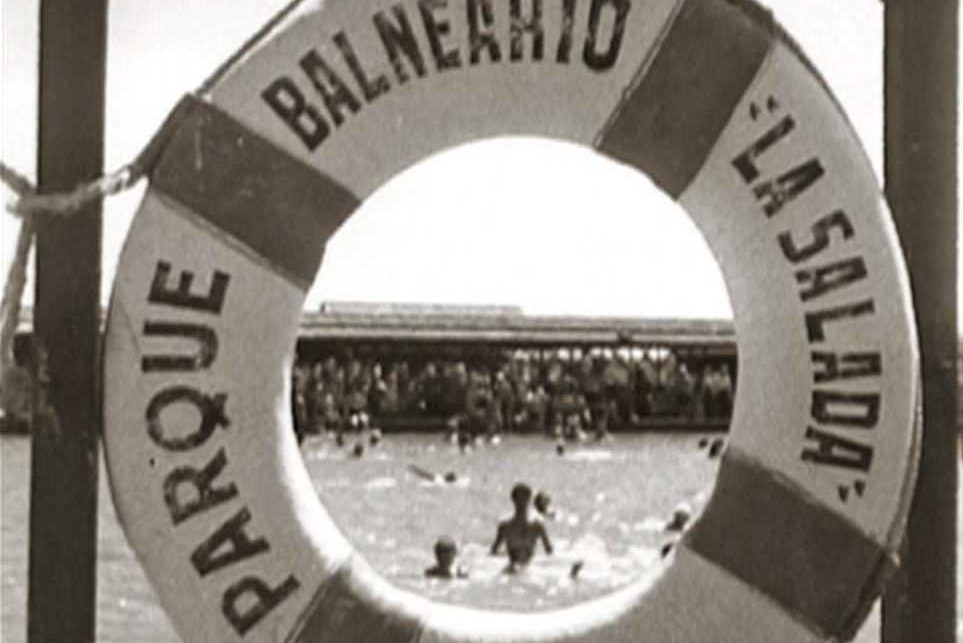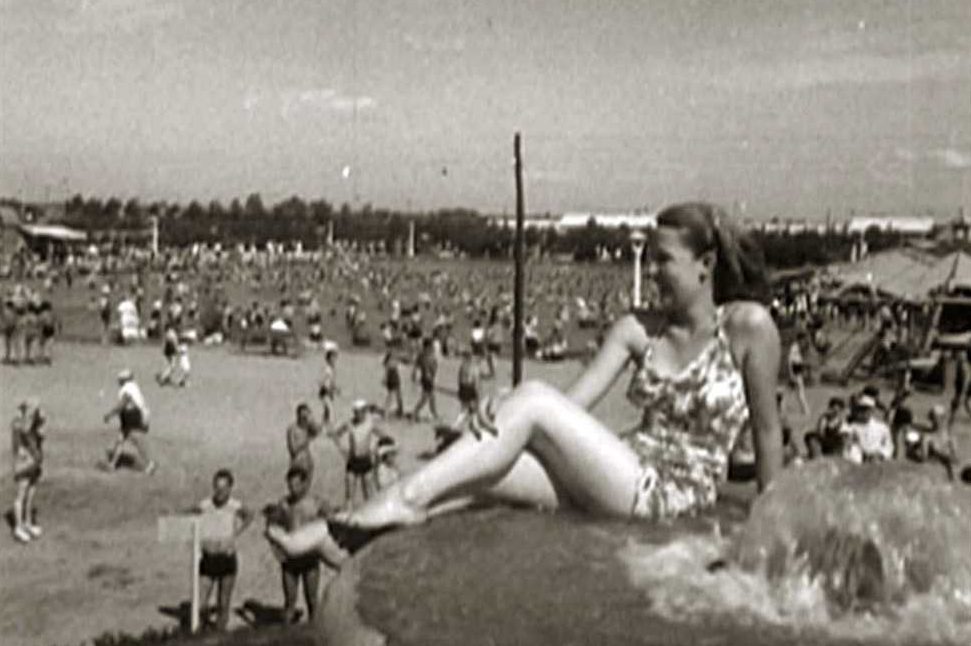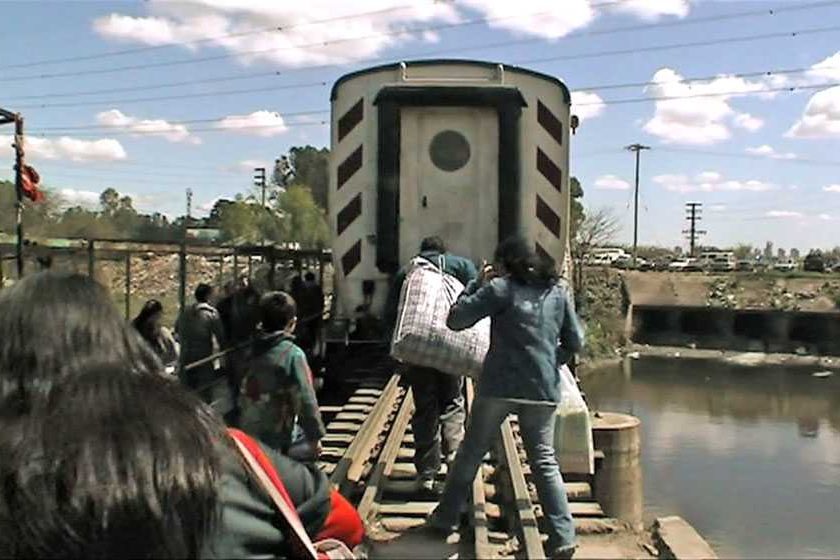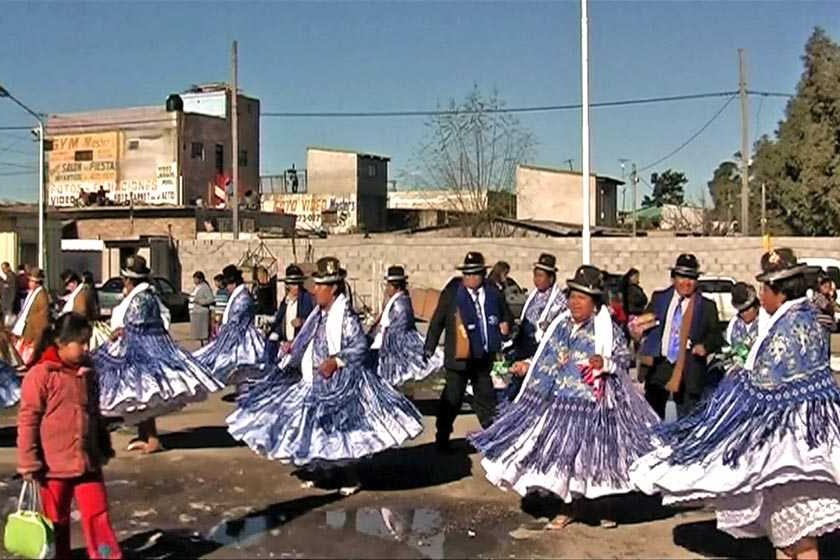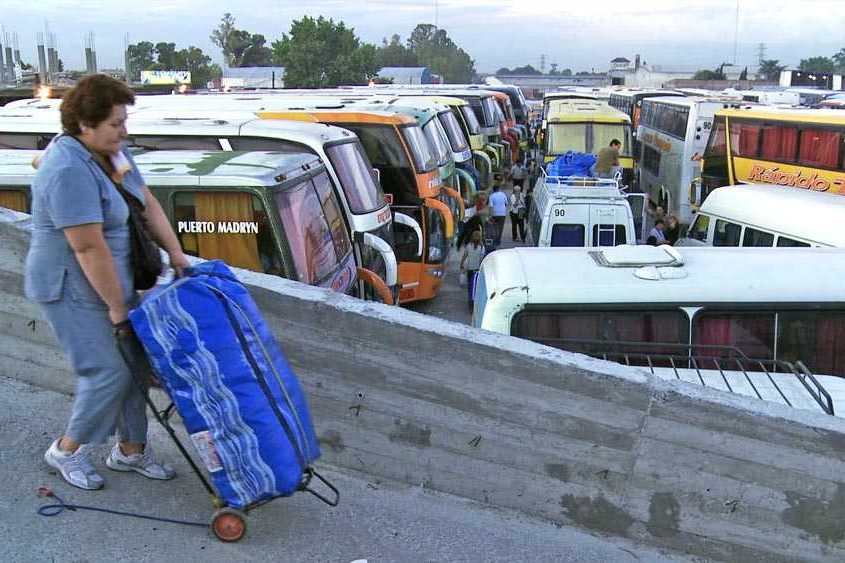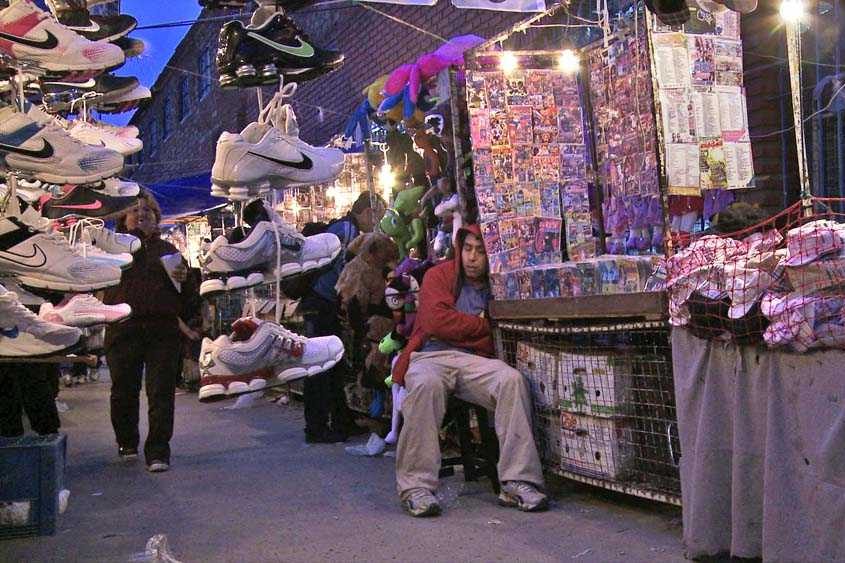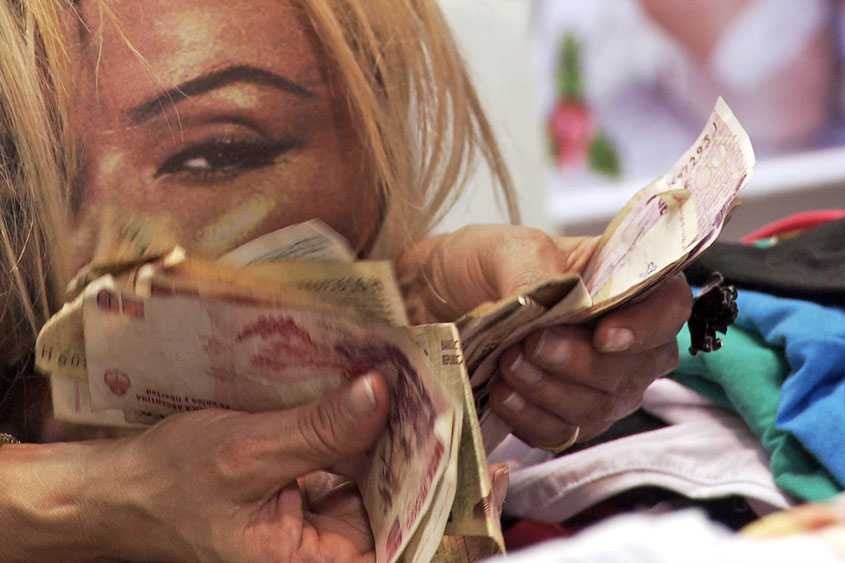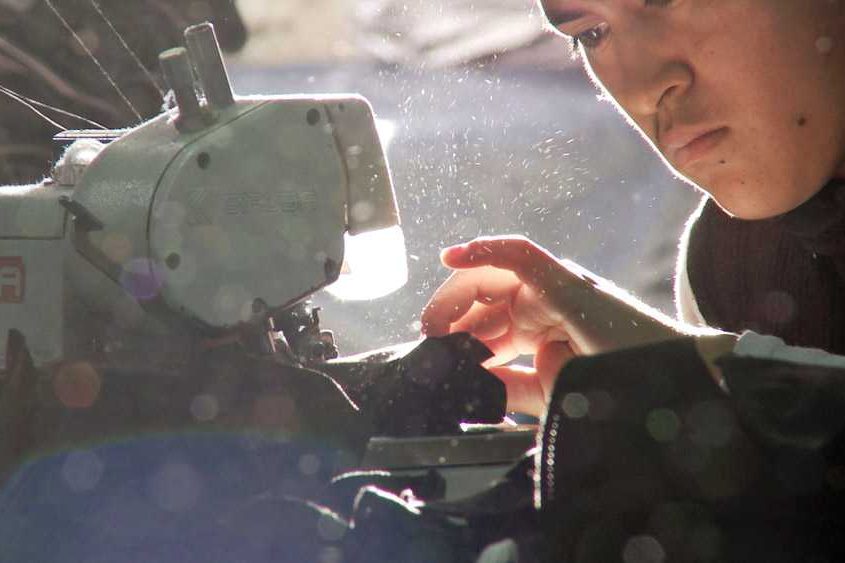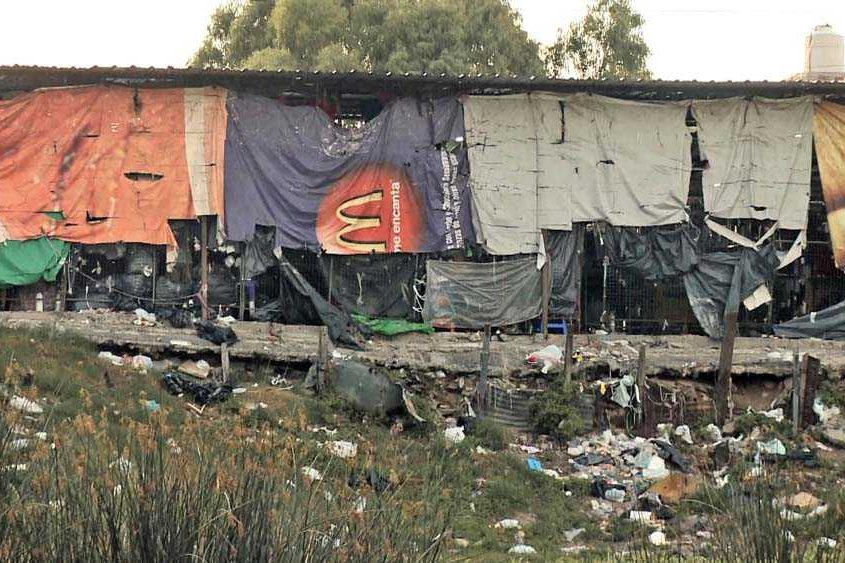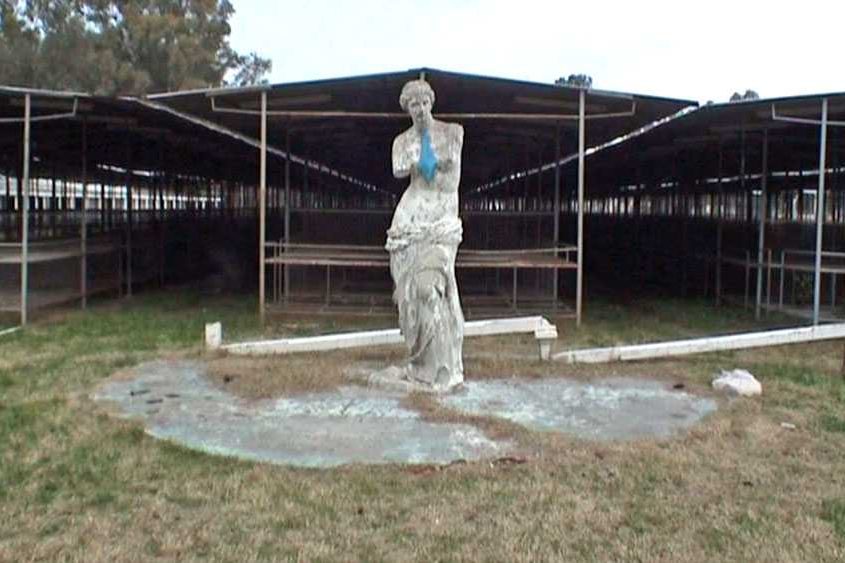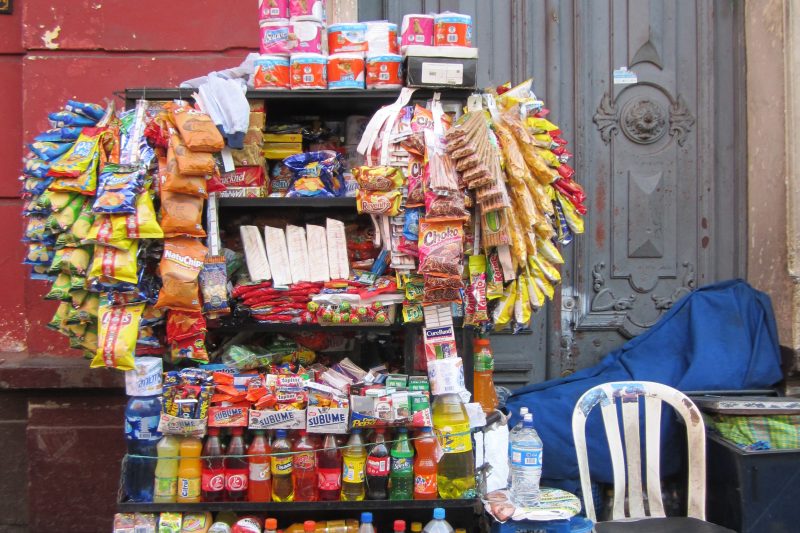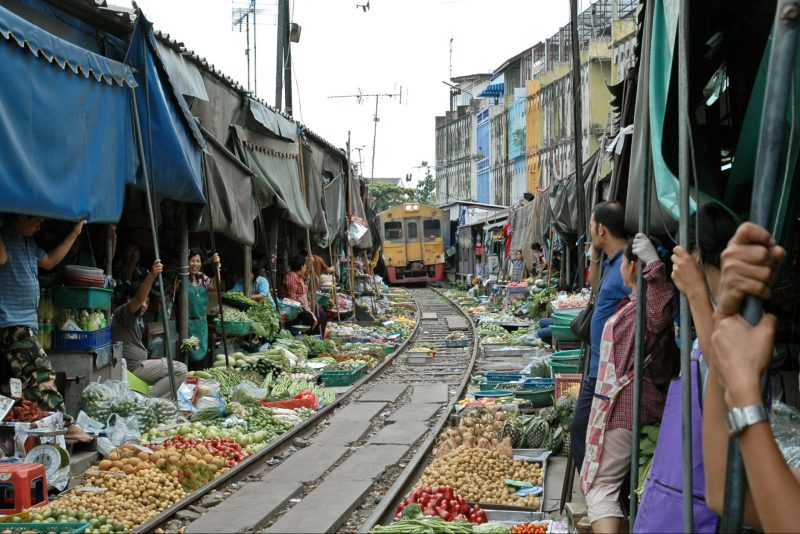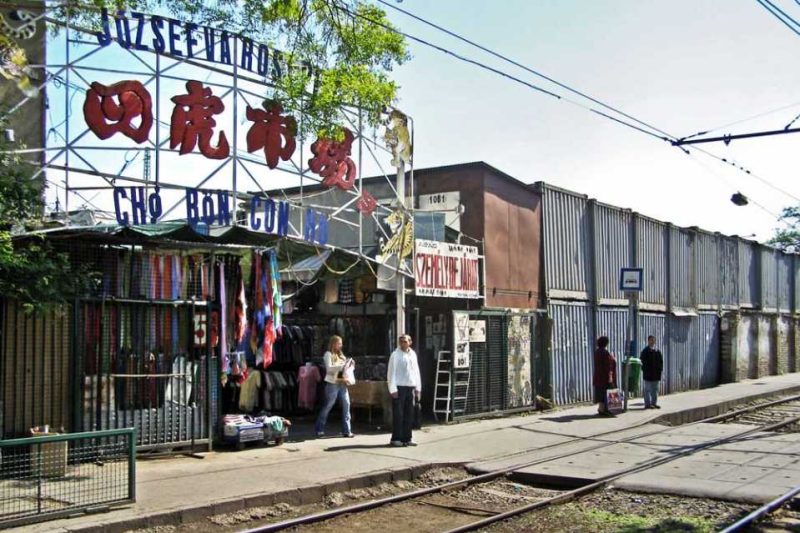- MOBILITY:
URBAN INFORMALITIES - FWF
- 2010-2015
- Other Markets
CASE STUDY: LA SALADA, BUENOS AIRES
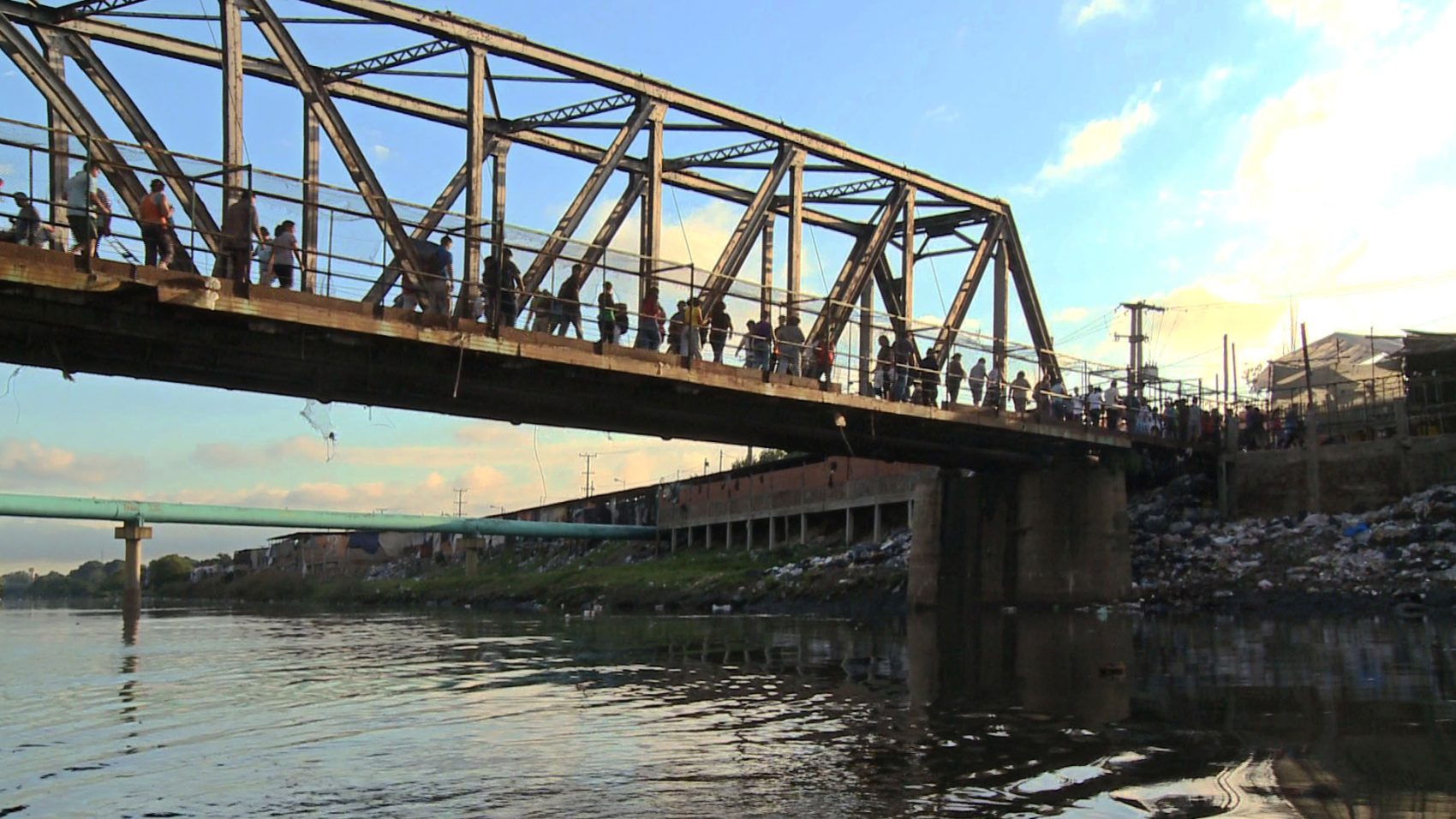
Crossing the river Riachuelo (still from 'Hacerme Feriante', 2011)
BECOME A STALLHOLDER: DUPLICATING LA SALADA
Occupying the derelict remains of a once popular resort area on the fringes of Buenos Aires, La Salada is a sprawling informal flea market that specializes in textiles. Twice a week, at daybreak, this fair activates a powerful non-hegemonic economy in which numerous home-based manufacturers sell their goods to wholesalers coming from across the country.
In this process, new transnational social actors are establishing another city: An immense landscape of occupation and appropriation of an abandoned space that has been re-populated in a challenging way, duplicating the neoliberal city but also sabotaging it and opening it to a distinct time and space.
Because of judicial pressure on the city hall to clean up pollution of the Riachuelo river (a geographic landmark that involves three jurisdictions – municipal, state and national), the most parlous stalls located along the riverbank have recently been forcefully removed. This marks the beginning of a process of formalization that will benefit both the merchants who have set themselves up in warehouses in built-up areas and the informal real estate business. Every displacement engenders dispersion, a new phase for the riverbank stallholders who will turn to other peripheries for their trade.
Location(s): Buenos Aires, ARGENTINA On-Site Collaborators:
m7red
Julián d’Angiolillo
Photography: Julián d’Angiolillo
(stills from ‘Hacerme Feriante’)
Results of this case study were published in:
CONTRIBUTOR(S):
m7redis an independent research group co-founded by Mauricio Corbalan and Pio Torroja in Buenos Aires in 2005.
Julián d’Angiolillo
has a degree in visual arts and playwriting.
